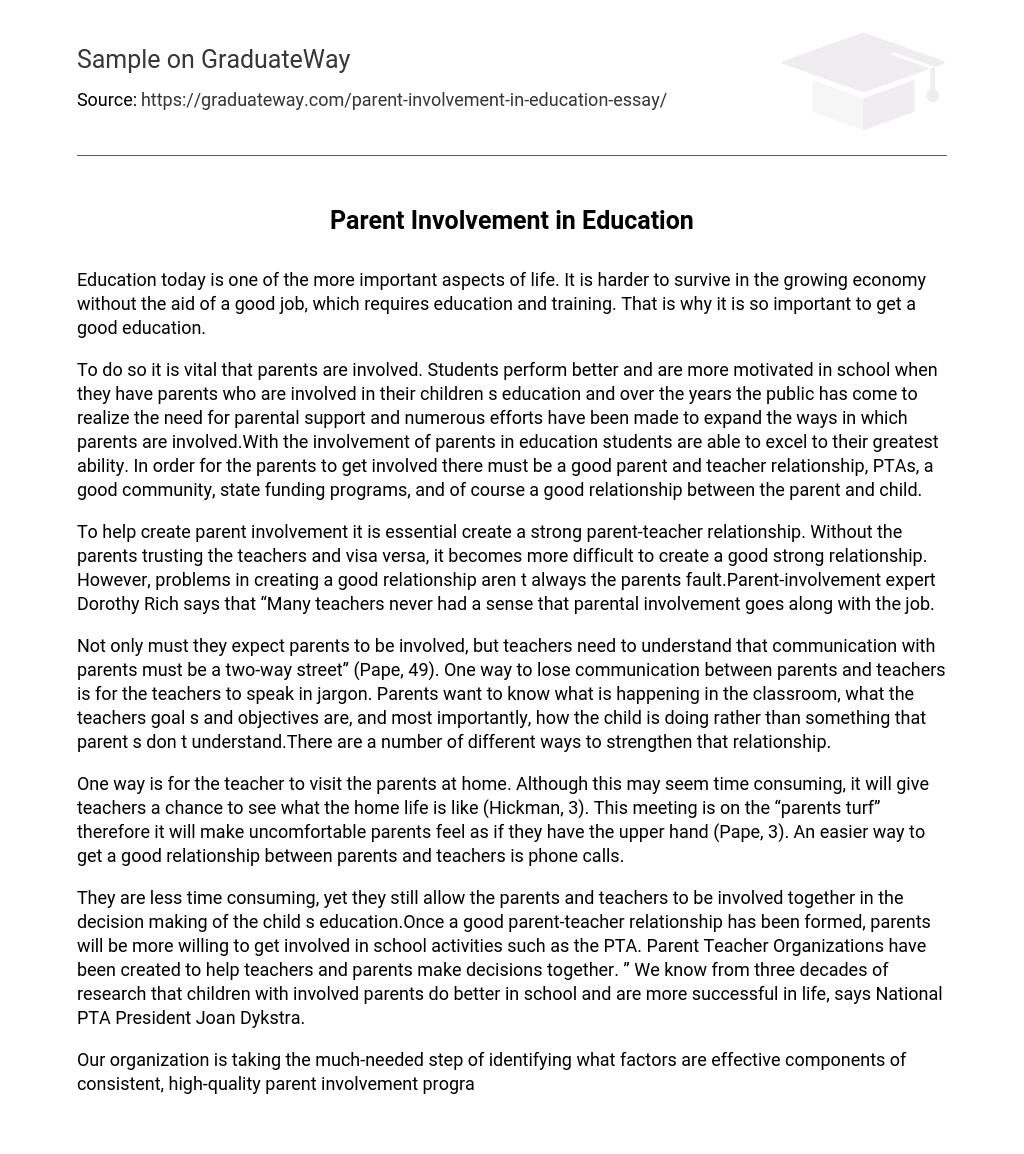Education is vital and highly valued in modern society. As the economy continues to expand at a fast pace, it has become increasingly challenging to achieve success without a well-paying job, which necessitates receiving proper education and training. Consequently, obtaining an excellent education is of paramount significance.
Recognizing the significance of parental involvement in students’ academic achievement and motivation, numerous efforts have been made to enhance parental support in education. These initiatives acknowledge the crucial role played by parents in their children’s educational journey and aim to enable students to reach their maximum potential. To promote parental involvement, it is essential to establish a robust parent-teacher relationship, encourage Parent-Teacher Associations (PTAs), foster a supportive community environment, offer state-funded programs, and nurture positive parent-child interactions.
The establishment of a strong parent-teacher relationship is essential for fostering parent involvement, as trust plays a crucial role in this dynamic. It should be noted that the responsibility of building a solid relationship does not solely lie with parents; Dorothy Rich, an expert in parental involvement, suggests that many teachers have never viewed parental involvement as part of their responsibilities.
According to Pape (49), teachers must anticipate and acknowledge the importance of reciprocal communication with parents. One way to impede this communication is by using technical jargon. Instead, parents prefer information about classroom activities, the teacher’s goals and objectives, and most importantly, their child’s progress rather than unfamiliar terms. To enhance this relationship, various strategies can be implemented.
One way to promote a positive relationship between parents and teachers is for the teacher to personally visit the parents at their home, despite it being time-consuming. This visit allows teachers to observe the home environment (Hickman, 3), empowering parents by holding the meeting on their “turf” and reducing any discomfort (Pape, 3). Alternatively, making phone calls can also create a strong bond between parents and teachers.
Parents and teachers can utilize alternative approaches to save time yet remain engaged in a child’s education. A method is by cultivating a robust bond between parents and teachers, encouraging parents to participate in school activities such as becoming members of the Parent Teacher Association (PTA). Parent Teacher Organizations strive to facilitate cooperation between teachers and parents when making decisions. Joan Dykstra, President of the National PTA, highlights that extensive research conducted over thirty years reveals that children whose parents are involved excel academically and attain greater accomplishments in life.
Our organization, in partnership with the U. S. National PTA, has identified six standards to enhance parent involvement:
- Establishing two-way communication between home and school
- Promoting and supporting parenting skills
- Involving parents actively in student learning
- Encouraging parents to volunteer as partners in schools
- Including parents in school decisions affecting children and families
- Engaging in community outreach to acquire resources for strengthening schools
+
PTAs play a supportive role in various areas of the school such as choosing textbooks, handling finances, acquiring supplies, and managing other tasks that teachers and staff may not have enough time for. Furthermore, there are state and local programs as well as a national initiative called the National Coalition for Parent Involvement in Education (NCPIE) that are committed to promoting successful family-school partnerships across the country.
The NCPIE asserts that parental involvement in their children’s education, along with collaboration between parents and schools, fosters a sense of belonging for parents while enhancing academic achievement and overall school excellence. To delve deeper into this matter, the U.S. conducted a survey in 1998.
The Department of Education conducted a survey on Family Involvement in Education.





